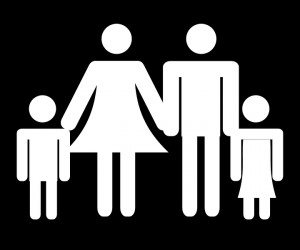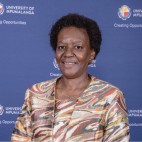Former UN Secretary-General Kofi Annan once spoke about the importance of creating safe environments for children, saying: "There is no trust more sacred than the one the world holds with children. There is no duty more important than ensuring that their rights are respected, that their welfare is protected, that their lives are free from fear and want and that they grow up in peace."
Since 1994 we have adopted legislation and policies to ensure that our children grow up in the environments as described by the former UN man. Despite our best efforts, many families still face severe challenges in caring and protecting their children.
Even when checking records, we have to acknowledge that many cases where children are abused and exploited go unreported. The reasons can be linked to children being too young to understand their rights or not knowing that acts are unacceptable and illegal. Even in cases where children recognise wrongs, they might be fearful of reporting them especially where the perpetrator is in a position of authority.
Therefore it is imperative that we annually mark National Child Protection Week to raise awareness for the rights of children. With this awareness week we mobilise all sectors of society to care for and protect children. In addition, to improve the reporting of cases where the rights of children are infringed upon.
This year we will celebrate Child Protection Week from 29 May to 5 June 2016 under the theme: “Let Us All Protect Children to Move South Africa Forward”. The theme reminds us that although the child protection campaign is led by the Department of Social Development, it is incumbent on all of South Africans to play a role in protecting children and creating a safe and secure environment for them.
We all have a duty to care for the children in our society. The government cannot eradicate the scourge of child abuse and neglect alone; it often occurs in homes where children should feel safe, nurtured and cared for. It is therefore the duty of everyone to report those who hurt, exploit and abuse children so that they can be arrested and convicted.
The government has adopted a zero-tolerance approach towards child abuse. We have put measures in place to make it easy as possible for children to seek help against abuse or exploitation.
Family Violence Child Protection and Sexual Offences Units have dedicated investigators and other resources that are assigned to cases where women and children are affected by violence. These units ensure sound investigations, competent prosecutions and victim support. The police also installed 919 victim friendly rooms to provide a private setting to take statements from children.
Nationally Thuthuzela Care Centres also serve as one-stop facilities to reduce secondary victimisation, improve conviction rates and reduce the cycle time for finalisation of cases. To create a more sensitive environment, 43 sexual offences courts provide children with a court-friendly environment.
From the Department of Social Development, we are committed to support destitute families. Our social assistance programme continues to receive global praise as among the most effective poverty alleviation initiative. “The State of Social Safety Nets 2014” report of the World Bank ranked South Africa’s Child Support Grant among the top five programmes across the world.
Almost 12 million children receive a child support grant to fight poverty. The Department has found that 97% of Child Social Grant beneficiaries aged 5 to 17 years are attending an educational institution. Moreover, out of 455 922 pupils who passed their matric examinations last year, 304 913 received a social grant.
We are however greatly concerned about the wellbeing of those living in child-headed and youth households. To assist these children, the Isibindi initiative which means ‘courage’ deploys trained child and youth care workers within identified households to provide care and support to orphaned and vulnerable children. These include assisting them to get ready for school in the mornings, meal preparation, assistance with homework, registration for social grants and psychosocial support.
Research by the Department has further shown that orphaned and vulnerable children, who received no care, often dropped out of school or received low grades, while 76% of children who received support from the Isibindi initiative passed their matric in 2013.
Although we only celebrate Child Protection Week for seven days, we urge South Africans to take an interest in their children and those in our community 365 days of the year. Let us all protect our children to move South Africa forward!






